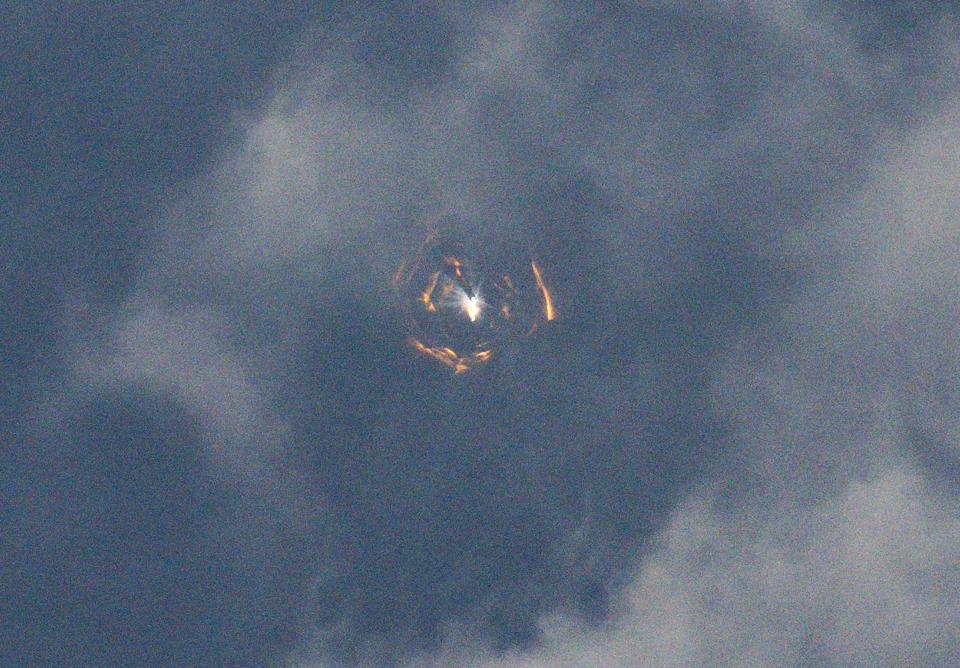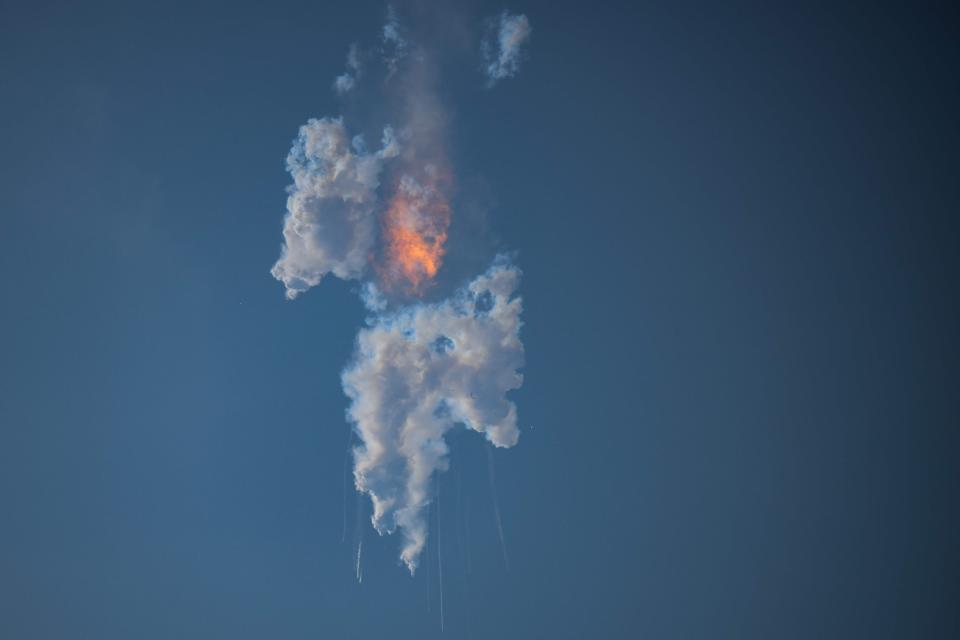Starship splashes down for first time in 4th test: See progression of the SpaceX flights
SpaceX's Starship, the largest and most powerful spacecraft to ever be sent to space, completed a fourth test flight Thursday, splashing down in the Indian Ocean successfully for the first time since it started conducting test flights last year. The rocket's first three tests ended in explosions.
The unmanned craft is classified as a super heavy-lift launch vehicle and is working toward an ultimate goal of delivering astronauts back and forth between the Earth, moon and even Mars.
Thursday's successful test is good news for NASA, which awarded SpaceX a $2.9 billion contract in 2021 to develop the first commercial human lander for its Artemis III mission to the moon slated for 2026.
Here's what happened in all four of the Starship's test launches so far, which illustrates SpaceX's progressive improvement since its inaugural test in April 2023.
June 6, 2024: Starship completes first-ever successful landing burn in fourth test flight
The Starship had its most successful test run the fourth time around, lifting off from SpaceX’s private Starbase site in Boca Chica, Texas at 8:50 a.m. ET Thursday morning.
The craft experienced a successful separation from the booster, which saw 32 of 33 engines igniting properly during launch, about seven minutes into the flight.
The booster successfully came back down to Earth and splashed down in the Gulf of Mexico as planned and all six of Starship's engines powered it into successful orbital insertion.
Heat shields protecting the outside of the craft took a beating, with at least one throwing debris into one of the live-streaming external cameras, but it managed to make a successful reentry into Earth's atmosphere.
Roughly one hour and six minutes into the flight, Starship completed its first-ever landing burn and splashed down into the Indian Ocean to raucous applause.
March 14, 2024: Starship reaches space before being lost in atmosphere in third test flight
In the third test, the Starship succeeded in separating from the booster and proceeding to orbit within minutes of launching, where it conducted a series of in-flight tests while coasting through space.
Video of its flight beamed back to Earth using SpaceX's Starlink Satellite network was able to capture the beginning of the spacecraft's re-entry into Earth's atmosphere. However, the signal was lost about an hour into the mission before SpaceX concluded that the craft likely broke apart.

Despite Starship's failure to make its planned splashdown in the Indian Ocean, SpaceX said the rocket still achieved several key milestones, including the successful firing of its 33 Raptor engines in the booster and the opening of a payload door.
NASA Administrator hailed the test as an optimistic development. "I'm just completely blown away," said Dan Huot, SpaceX communications manager, who helped to host the live webcast. "We're farther than we've ever been before."
Nov. 18, 2023: Starship makes it further in second test flight, but still explodes
During the second launch test of the Starship, the rocket survived for longer and achieved some milestones, but it still eventually exploded.
The booster was able to successfully separate from the rocket, which reached space before the ground crew lost communication with it after nine minutes. Three minutes later, SpaceX lost both the booster and the spacecraft in two explosions.
Rather than seeing it as a setback, SpaceX expressed optimism about the stage separation while saying the rest would just be valuable data to help them remedy whatever went wrong.
“The real topping on the cake today, that successful liftoff,” SpaceX commentator John Insprucker said after the November test, as reported by the Associated Press. Insprucker noted that for the first time, all 33 booster engines fired as designed and the booster separated seamlessly from the spaceship, which reached an altitude of 92 miles.
April 20, 2023: Starship explodes minutes after launch in inaugural test flight

The Starship got off to a rough start when it exploded just four minutes into its inaugural test flight on April 20.
The craft was able to launch at SpaceX’s private Starbase site, but telemetry data revealed that several of the spacecraft's engines had failed, triggering the explosion before the booster and spacecraft were able to even separate.
SpaceX later confirmed the rocket's flight termination system was activated to destroy the tumbling vehicle before it met its fiery end.
Eric Lagatta covers breaking and trending news for USA TODAY. Reach him at [email protected]
This article originally appeared on USA TODAY: SpaceX Starship launches: Tests go from explosions to splashdown
